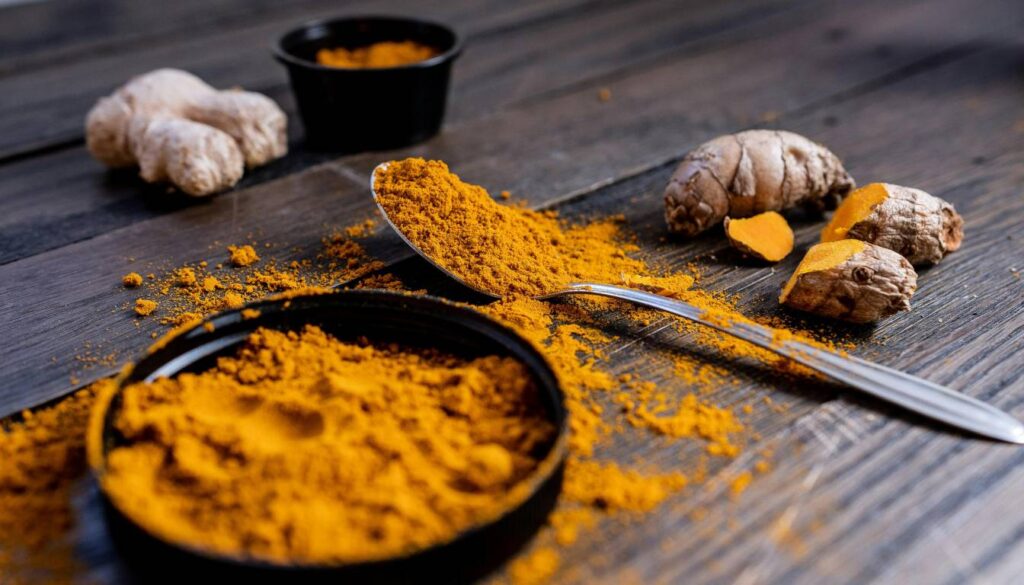Navigating through the discomfort of jaw clenching or teeth grinding can definitely take its toll. Believe me, I’ve experienced the morning aches and even found some relief in an unexpected ally—chamomile tea, with its soothing qualities. Chamomile is one of the top herbal remedies in my jaw-clenching arsenal. Let’s explore other options and see what you can do about it!
This article offers an abundance of natural remedies brimming from herbal treatments to lifestyle adjustments designed to tackle this prevalent concern head-on. Let’s embark on your journey toward tranquillity and minimal grinding!
Understanding Herbal Treatment Jaw Clenching Protocol
Teeth grinding, also known as jaw clenching, is a common condition that can have various causes and effects on our oral health.
What is teeth grinding?
Teeth grinding, also known as bruxism, is a common condition where an individual clenches or grinds their teeth unconsciously. People often do it while sleeping and sometimes during the day without being aware of it.
The act of teeth grinding can lead to various issues such as jaw discomfort, headaches, tooth sensitivity, enamel damage, and even loss of teeth over time if left untreated. It’s typically linked with stress and anxiety but can also be influenced by other factors like poor sleep habits or abnormal bite alignment.
Herbal treatment of jaw clenching is one way individuals are addressing this issue. Warm compresses might offer relief for those experiencing jaw-clenching symptoms due to bruxism. There’s also promising evidence suggesting chamomile tea’s effectiveness in treating this condition due to its natural sedative properties.
Causes and effects
Stress or anxiety often triggers jaw clenching and teeth grinding. This involuntary action, known as bruxism, can occur during the day or night. My teeth may grind together when I’m concentrating hard on a task or while I’m sound asleep, not even aware it’s happening.
Over time, this constant pressure and friction can lead to effects like worn tooth enamel, increased tooth sensitivity, and even chipped or broken teeth. Some might experience dull headaches that originate in the temples along with facial pain due to overworked jaw muscles from persistent clenching.
A misaligned bite could be another possible cause for these issues where the upper and lower teeth don’t fit well together which puts additional strain on jaw muscles resulting in painful conditions like TMJ disorder.
Prevalence and symptoms
Jaw clenching, also known as bruxism, is more common than most people realize.
- Over 10% of adults and 15% of children experience this condition in some form.
- Bruxism mainly occurs at night, categorized as sleep bruxism.
- Daytime clenching due to stress or nervousness also exists.
- Symptoms can vary from mild to severe, with some individuals not even realizing they grind their teeth until complications arise.
- Common signs include headaches upon waking, jaw pain or discomfort, damage to teeth, and disturbed sleep.
- In severe cases, persistent grinding can lead to the loosening or loss of teeth.
- Jaw tension often develops over time due to continuous clenching.
- Individuals may also notice changes in their facial appearance due to muscular hypertrophy in the jaw area.
- I must pay attention to these symptoms as early intervention can help alleviate further dental damage and pain.
Natural Remedies for Jaw Clenching

Organic Turmeric Root Powder – Get Yours Here.
Turmeric milk is a natural remedy that can be used to address jaw clenching or teeth grinding. Turmeric contains curcumin, which has anti-inflammatory properties and may help reduce inflammation in the jaw muscles.
Additionally, turmeric milk has been shown to have potential calming effects on the nervous system, helping to alleviate stress and anxiety associated with teeth grinding. To prepare turmeric milk, simply mix a teaspoon of turmeric powder with warm milk and drink it before bed.
Incorporating this herbal treatment jaw clenching protocol into your routine may provide relief from jaw tension and promote better sleep.
To naturally alleviate jaw clenching, incorporating herbal remedies into your routine can be highly beneficial. Herbal teas such as chamomile, valerian root, and lavender have soothing properties that help reduce stress and promote relaxation.
Additionally, consuming magnesium-rich foods like leafy greens and nuts can help relax the muscles involved in jaw clenching. Turmeric milk and vitamin C are also known for their anti-inflammatory properties, which can aid in relieving tension in the jaw area.
Herbal tea for stress reduction – Organic Chamomile & Lavender – Get It Here
Chamomile and lavender herbal teas are well-known for their calming properties, making them effective options for reducing stress and anxiety associated with teeth grinding. These natural remedies can be especially beneficial when consumed before bed to help alleviate nighttime bruxism caused by nervousness and tension.
By incorporating non-caffeinated herbal teas into your daily routine, you can potentially find relief from jaw clenching while enjoying a soothing beverage.
Magnesium-rich foods – Get High Absorption Magnesium Here
Including magnesium-rich foods in your diet can be beneficial for managing jaw clenching or teeth grinding. Magnesium is a mineral that plays a vital role in muscle relaxation and nerve function.
By increasing your intake of magnesium-rich foods, you may help relax the muscles involved in jaw clenching and reduce the frequency or intensity of teeth grinding. Some examples of magnesium-rich foods include dark leafy greens like spinach and kale, nuts and seeds such as almonds and pumpkin seeds, legumes like black beans and lentils, whole grains like brown rice and quinoa, as well as avocados and bananas.
Consuming these foods regularly can contribute to maintaining proper muscle function throughout your body, including the jaw muscles involved in teeth grinding. It’s important to note that while incorporating magnesium-rich foods into your diet may potentially alleviate symptoms of jaw clenching or teeth grinding, it’s always advisable to consult with a healthcare professional for an accurate diagnosis and personalized treatment plan.
Vitamin C – Vitamin C with Q-C – Get Yours Here
Vitamin C is an essential nutrient that plays a crucial role in maintaining overall health. It is also believed to have potential benefits for individuals dealing with jaw clenching or teeth grinding.
Vitamin C has anti-inflammatory properties that may help reduce the inflammation and sensitivity in the jaw muscles, which can contribute to these conditions. Additionally, it supports the immune system and promotes healing, which can be beneficial for reducing any damage caused by teeth grinding.
Including foods rich in vitamin C, such as citrus fruits, berries, and leafy greens, in your diet can help ensure you are getting an adequate amount of this important nutrient.
Valerian Root – Get Yours Here.
Valerian root is a herbal remedy that may help with jaw clenching or teeth grinding. It has been used for centuries for its calming and sedative properties. Valerian root can promote relaxation and reduce anxiety, which are known triggers for bruxism.
Its anti-inflammatory properties may also help alleviate muscle tension in the jaw area. Some individuals find relief by consuming valerian root in the form of tea or supplements before bed to encourage a more peaceful sleep.
While research on the effectiveness of valerian root for teeth grinding is limited, it is worth considering as part of your holistic approach to managing jaw-clenching symptoms.
Lifestyle Changes to Reduce Jaw Clenching

To reduce jaw clenching, incorporating stress-reduction techniques, practising mindful teeth placement, regularly massaging the jaw muscles, and using hot towel therapy can be effective lifestyle changes.
Stress-reduction techniques
Stress-reduction techniques can be effective in managing jaw clenching and teeth grinding. Here are some strategies to help alleviate stress and reduce symptoms:
- Engage in relaxation exercises, such as deep breathing or progressive muscle relaxation.
- Practice mindfulness meditation or yoga to promote a sense of calm and reduce tension in the jaw muscles.
- Take regular breaks throughout the day to engage in activities that you find enjoyable and relaxing.
- Get regular exercise to release endorphins and lower stress levels.
- Prioritize self-care activities, such as taking baths, listening to soothing music, or engaging in hobbies that help you unwind.
- Limit exposure to stressful situations or triggers whenever possible.
- Seek support from friends, family, or a therapist to discuss any underlying stressors contributing to jaw clenching.
Mindful teeth placement
To reduce jaw clenching and teeth grinding, practising mindful teeth placement can be beneficial. By being aware of how we position our teeth throughout the day, we can consciously prevent unnecessary tension in the jaw muscles.
Simply ensuring that our upper and lower teeth do not touch when at rest or during activities like reading or watching television can help relax the jaw. Mindful teeth placement encourages a more relaxed state for the jaw muscles, reducing the likelihood of clenching and grinding while promoting overall relaxation.
Regular jaw massages
Regular jaw massages can provide relief for individuals experiencing jaw clenching. They help relax the muscles and reduce tension in the jaw. Here are some additional techniques that can be used:
- Gently massage the muscles on both sides of the face with your fingertips.
- Use circular motions to massage the area just below the cheekbones.
- Apply gentle pressure to the temples using your thumb and index finger.
- Use your fingers or knuckles to massage along the jawline, moving from the back of the jaw towards the chin.
Hot towel therapy
One effective and natural remedy for jaw clenching is hot towel therapy. Applying a warm compress to the jaw can help relax the muscles, reduce tension, and alleviate some of the discomfort associated with teeth grinding.
The heat from the towel helps increase blood flow to the area, promoting relaxation and soothing sore muscles. It’s a simple yet effective technique that can be done at home. By incorporating hot towel therapy into your daily routine, you may find relief from jaw-clenching symptoms and experience greater comfort throughout the day.
Seeking Professional Help
Consulting a healthcare professional is essential for effective management of jaw clenching.
Splint therapy
Splint therapy is often recommended as the first line of defence against teeth grinding. A splint, also known as an occlusal or night guard, is a custom-fit device that covers either the upper or lower teeth to prevent them from grinding together.
The splints are made from durable materials and can be worn during sleep or throughout the day to protect your teeth and alleviate jaw-clenching symptoms. By providing a barrier between your upper and lower teeth, splints help reduce muscle tension in the jaw and minimize damage caused by grinding.
It’s important to consult with a dental professional who can assess your condition and create a personalized splint tailored to your needs.
Chiropractic care
Chiropractic care is another potential treatment option for individuals experiencing jaw clenching or teeth grinding. Chiropractors focus on the relationship between the spine and the nervous system, aiming to alleviate pain and improve overall well-being.
They may use spinal adjustments and other techniques to address any misalignments in the spine that could be contributing to jaw tension. This approach can help reduce muscle tension, promote relaxation, and potentially alleviate symptoms of bruxism.
While further research is needed to fully understand its effectiveness, chiropractic care offers a holistic alternative for those seeking non-pharmaceutical treatments for jaw clenching.
Massage therapy
Massage therapy is another potential approach for addressing jaw clenching or teeth grinding. It involves the manipulation of muscles and tissues in the jaw, face, and neck to reduce tension and promote relaxation.
By targeting the areas directly affected by bruxism, massage therapy can help relieve muscle tightness and pain associated with teeth grinding. The hands-on techniques used during a massage session may also improve blood circulation, which can contribute to better overall oral health.
Incorporating regular jaw massages into your lifestyle changes may provide additional relief from the symptoms of jaw clenching, allowing you to relax and find some respite from this condition.
Oral health routine improvement
Taking care of your oral health is essential for reducing jaw clenching. Here are some ways you can improve your oral health routine:
- Brush your teeth twice a day to remove plaque and prevent tooth decay.
- Use a soft-bristled toothbrush to avoid irritating your gums and teeth.
- Floss daily to remove food particles and prevent gum disease.
- Rinse your mouth with an antimicrobial mouthwash to kill bacteria and freshen your breath.
- Avoid excessive consumption of sugary foods and drinks, as they can contribute to tooth grinding.
- Visit your dentist regularly for check-ups, cleanings, and any necessary dental treatments.
- Consider using a night guard, which is a custom-fitted mouthguard worn during sleep to protect your teeth from grinding.
- Practice good posture during the day to reduce tension in the jaw muscles.
- Avoid chewing on non-food objects like pens or nails, as this can lead to increased jaw clenching.
- Stay hydrated by drinking plenty of water throughout the day, as dehydration can worsen teeth grinding.
Using night guards – Get Yours Here
Using night guards is a common treatment for jaw clenching or teeth grinding, also known as bruxism. Night guards are custom-made devices that fit over the teeth and create a barrier between the upper and lower jaws, preventing them from coming into contact during sleep.
By wearing a night guard, you can protect your teeth from damage caused by grinding or clenching. Night guards also help to relieve muscle tension in the jaw and reduce pain associated with bruxism.
It is important to consult with a dental professional who can assess your situation and provide guidance on how to properly use a night guard for effective treatment of jaw clenching.
Before You Go – Herbal Treatment Jaw Clenching

Herbal treatment jaw clenching protocol can be an effective approach for reducing jaw clenching and teeth grinding. Chamomile and lavender tea, along with other natural remedies like warm compresses and muscle stretching exercises, have shown promise in alleviating the symptoms associated with bruxism.
By incorporating these holistic solutions into your routine, you may find relief from jaw tension and improve your overall oral health.
Herbal Treatment Jaw Clenching Protocol and The Herb Prof: A Natural Solution
Jaw clenching got you down? Don’t fret! Herbal Treatment Jaw Clenching Protocol and The Herb Prof are here to help!
The Power of Knowledge
The Herb Prof is your herbal encyclopedia. It’s packed with information about herbs that can help with jaw clenching. It’s like having a herbalist at your fingertips!
Herbal Protocol to the Rescue
The Herbal Treatment Jaw Clenching Protocol is a game-changer. It’s a step-by-step guide to using herbs to ease jaw clenching. And guess where you can find it? That’s right, on The Herb Prof!
A Perfect Partnership
Combine the protocol with the wealth of knowledge on The Herb Prof, and you’ve got a winning combination. It’s like having a personal herbalist guiding you on your journey to relief.
So, if jaw clenching is causing you grief, remember – The Herb Prof and the Herbal Treatment Jaw Clenching Protocol are just a click away. Here’s to a clench-free future!
References – Herbal Treatment Jaw Clenching
Little Herb Encyclopedia, by Jack Ritchason; N.D., Woodland Publishing Incorporated, 1995
The Ultimate Healing System, Course Manual, Copyright 1985, Don Lepore
Planetary Herbology, Michael Tierra, C.A., N.D., Lotus Press, 1988
Handbook of Medicinal Herbs, by James A. Duke, Pub. CRP Second Edition 2007
The Complete Medicinal Herbal, by Penelope Ody, Published by Dorling Kindersley
Check the Following Articles!
Herbal Remedy Statistics: The Ultimate Guide
Herbal Medicine Japan: Leading the Way in Herbal Medicine
Home Remedies Jaw Infection: Curing Infection Now!
Frequently Asked Questions – Herbal Treatment Jaw Clenching
1. What causes jaw clenching?
Jaw clenching can be caused by stress, anxiety, misalignment of the jaw, or certain medications.
2. How can herbal treatment of jaw clenching protocol help with jaw clenching?
Herbal treatment jaw clenching protocol can help relax the muscles and reduce tension in the jaw, providing relief from symptoms.
3. Are there any specific herbs that are effective for treating jaw clenching?
Some herbs that are commonly used to treat jaw clenching include valerian root, chamomile, passionflower, and lavender.
4. Can I use herbal treatment jaw clenching protocol alongside other remedies for jaw clenching?
Yes, herbal treatment jaw clenching protocol can be used in conjunction with other remedies such as stress management techniques and physical therapies for optimal results.
5. Are there any side effects associated with using herbal treatment jaw clenching protocol?
Using herbal treatment jaw clenching protocol is generally safe; however, some individuals may experience allergic reactions or interactions with other medications. It’s always best to consult a healthcare professional before starting any new treatment regimen.
